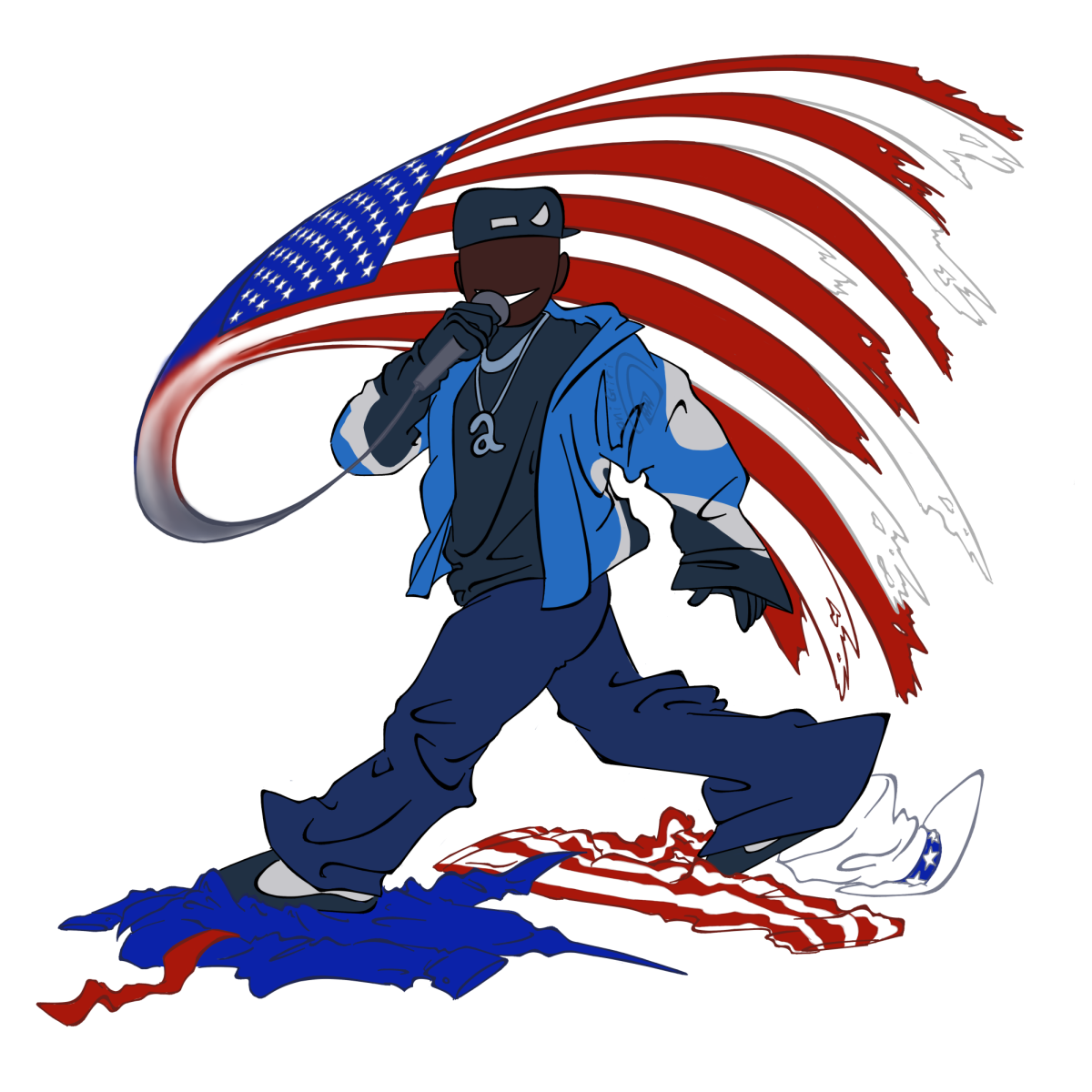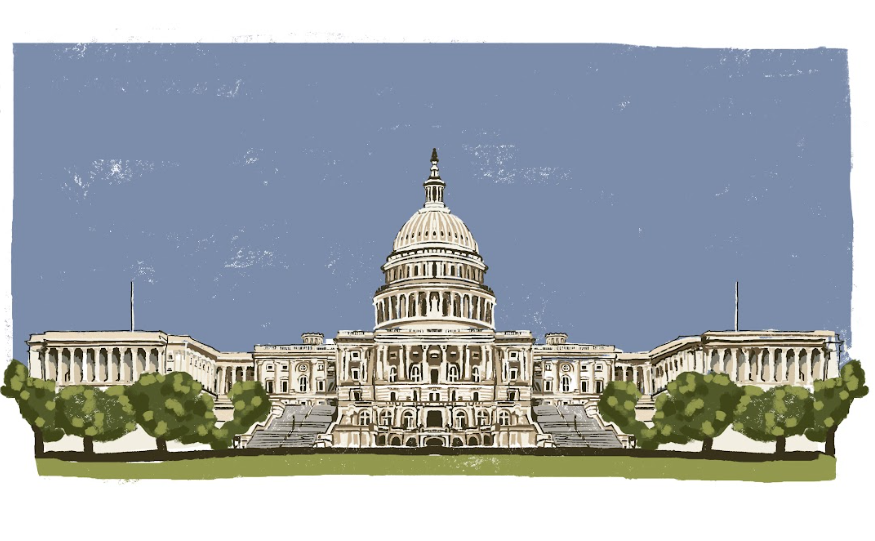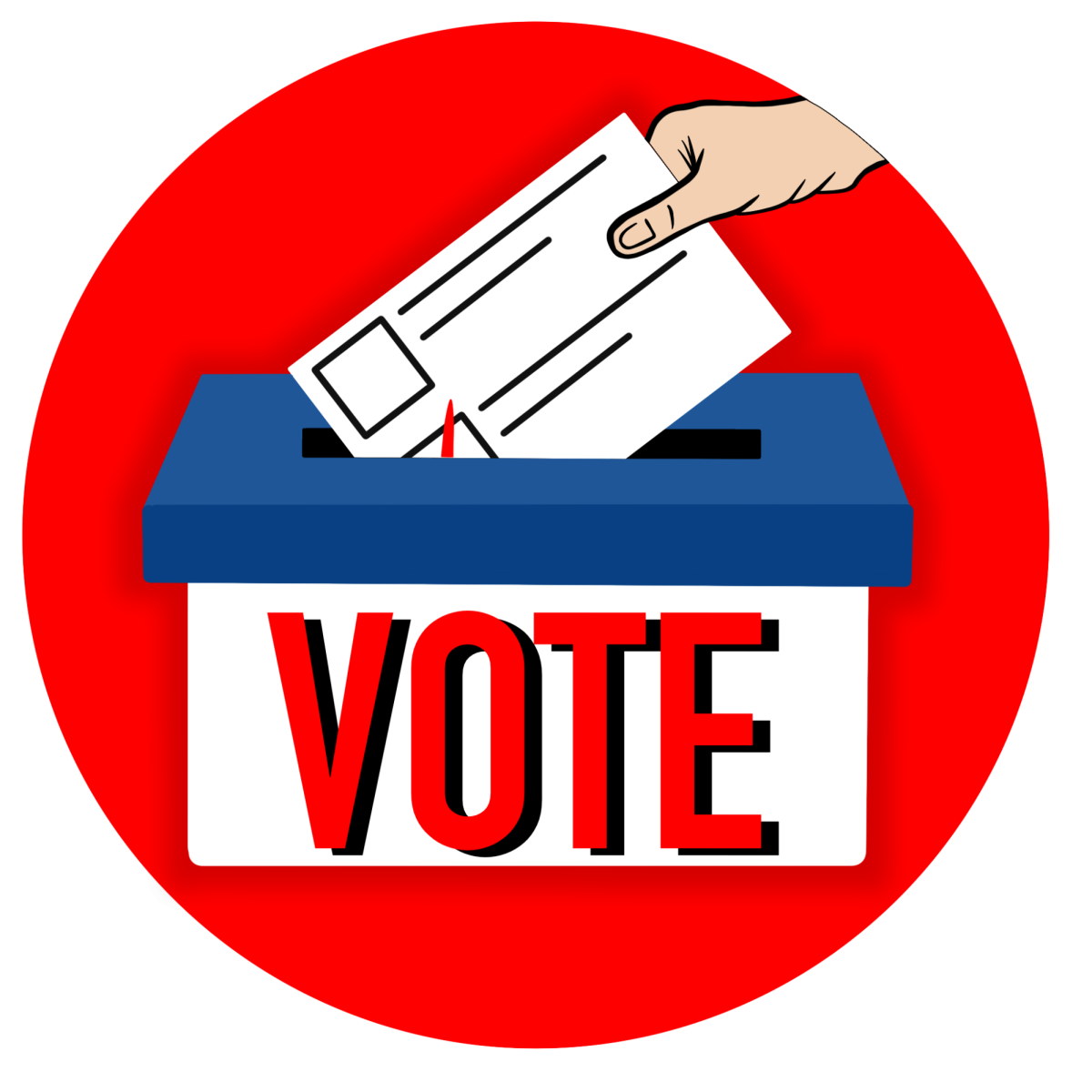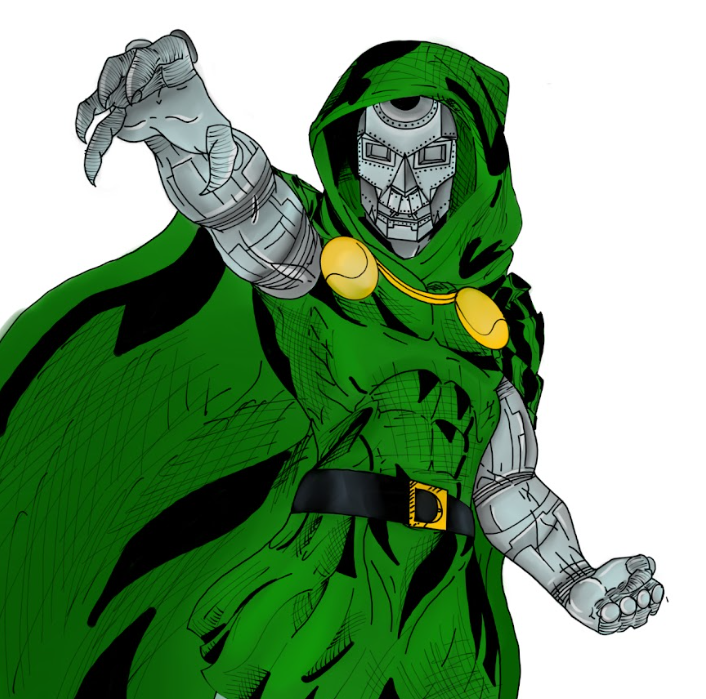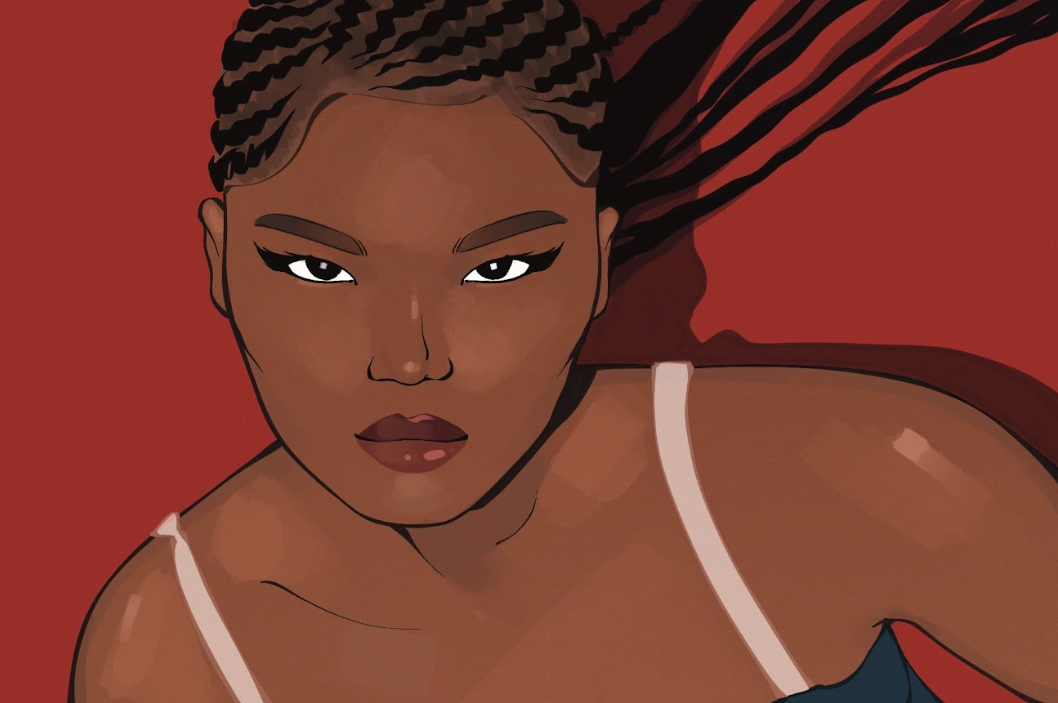After an overwhelmingly successful year for Kendrick Lamar — with him receiving five Grammys for his 2024 hit “Not Like Us,” his pop culture influence from his feud with Drake and the successful launch of his album “GNX” — it was no surprise that he would be the perfect artist to perform at this year’s Super Bowl.
Lamar did much more than deliver a phenomenal show; he commented on the state of American politics in front of President Donald J. Trump while one-third of the American populace was watching from home.
The performance opened with Samuel L. Jackson taking on the role of Uncle Sam, the figurehead for World War II American wartime propaganda. The casting would be deemed as controversial, due to Uncle Sam originally being depicted as an older, white male.
Jackson’s role as the American figurehead was meant to be the inverse of Lamar’s role, taking on the experience of the typical half-time performer — representing traditional, conservative and patriotic values. This is an ironic twist for Jackson as he was heavily involved in the Social Rights Movement — attending various protests and having been an usher at Martin Luther King Jr.’s funeral.
His portrayal of Uncle Sam is phenomenal; he leers at Lamar, claiming that the music is too “ghetto,” and asks Lamar if he “knows how to play the game.” Jackson’s portrayal serves as the epitome of American racism and colorism.
“The revolution ‘bout to be televised. You picked the right time but the wrong guy.” These opening words by Lamar set the tone for his monumental half-time performance at Super Bowl LIX. It is a retort against Uncle Sam, Lamar is not the average performer, and he will be heard.
It could also mean that it is an important time in American politics, but the American people chose the “wrong guy” when electing President Trump. Lastly, it could be interpreted as Lamar telling those watching that he is a performer and not a political messiah, whether he wants that to be true or not.
During the performance, Lamar stated, “I want to perform their favorite song, but you know they love to sue,” while talking with his background vocalists. During this, they play a snippet of “Not Like Us,” referencing Drake’s lawsuit against Lamar’s record label claiming the song was defamatory. While this is obviously a reference to their famous rap beef, there is a theorized layer behind this.
The background vocalists are the same voices featured on Lamar’s song “King Kunta,” from “To Pimp a Butterfly.” Fans have theorized that “King Kunta” is the real song he was not allowed to perform, dotting together connections from previous songs performed that night.
Moving through the performance, Lamar was gearing up to break the internet with his performance of “Not Like Us” when he stated, “It’s a cultural divide, I’ma get it on the floor. / 40 acres and a mule, this is bigger than the music. / They tried to rig the game, but you can’t fake influence.” His statement comes with a few layers, most notably of which is “40 acres and a mule” referencing the special order given out by the Union after the end of the Civil War, literally giving newly freed Black families 40 acres of former Confederate land and a mule.
The order was quickly overturned by President Andrew Johnson following President Abraham Lincoln’s death. The overturned order was yet another way to disenfranchise Black families post-slavery.
This idea influenced director Spike Lee in 1979, with him naming his production company “40 Acres” as a nod to said order. Connecting these ideas is Jackson, a long-time friend and collaborator of Lee’s.
Jackson’s performance as Uncle Sam was a callback to his work with Lee, having done similar roles in films like “Do the Right Thing” and “Chi-Raq.” After the performance, Lee thanked Lamar and Jackson on Instagram for the reference.
Ending the performance, of course, was the hit single and Grammy-winning “Not Like Us.” The influence of this track is undeniable, calling out Drake’s questionable behavior — claiming his counterpart is a pedophile on national TV. There was no way Lamar would not be playing this song; it is clear Drake will be thinking about this for a long time.
While controversial, Lamar’s performance will undoubtedly be remembered as one of the most viewed and most influential half-time performances of all time.


